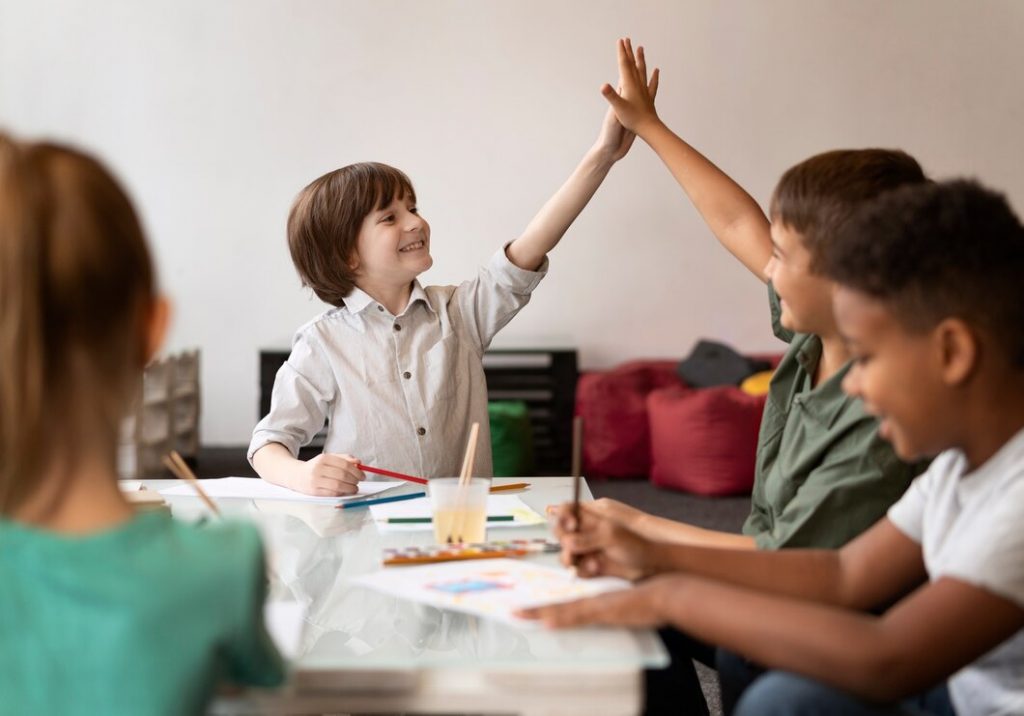Categories:
Tags:
Education is not just about academic knowledge, but also about shaping well-rounded individuals capable of managing their emotions, building healthy relationships, and making responsible decisions. In today’s increasingly complex world, these skills have become essential for both personal and professional success. Social-emotional learning (SEL) aims to prepare students to tackle daily challenges and contribute positively to their communities.
Social-emotional learning as a foundation for harmonious relationships and effective learning
Integrating emotional education programs into the school curriculum is a direct investment in the quality of the educational experience. These initiatives not only improve the school climate by fostering healthier relationships between students and teachers, but also have a significant impact on academic performance. When students develop skills like empathy, peaceful conflict resolution, and emotional self-regulation, the classroom becomes a safe, understood, and valued space. This emotional security fosters greater engagement in learning, enabling students to participate more actively and meaningfully.
Furthermore, by providing students with tools to manage their emotions, schools can prevent bullying, recurring conflicts, and disruptive behavior. A more harmonious environment benefits both students and teachers, allowing educators to focus more on teaching and less on managing emotional crises. Our platform offers resources that address these needs, helping build an inclusive, respectful, and collaborative school environment where everyone has the opportunity to thrive.
Strategies for integrating SEL into the school day
Effectively implementing SEL doesn’t require a complete overhaul of the school curriculum, but rather integrating strategies that promote these competencies naturally and daily. One of the most effective ways is through specific activities, such as workshops on emotional intelligence, or by including socio-emotional topics in regular subjects. For example, in literature classes, teachers can propose debates about the internal conflicts of characters and how they solve their problems. In social studies, the emotional impact of historical events or key decisions can be analyzed.
Another key strategy is fostering a positive learning environment where students feel comfortable expressing their emotions and opinions. This can be achieved through practices like dialogue circles, guided meditation, or using digital tools that allow for personal reflection. ODILO provides a variety of resources, from videos to full lesson plans, making it easy for educators to implement these activities. These resources are designed to benefit every student, regardless of their learning style or academic level.
An uncertain future with robust socio-emotional skills
In a constantly changing world, socio-emotional skills are not a luxury, but an essential necessity for successfully navigating the 21st century. Competencies like resilience, adaptability, creative problem-solving, and effective teamwork are now indispensable attributes in any professional or social context. These skills not only prepare students for labor market challenges but also equip them with tools to manage stress, establish healthy relationships, and maintain emotional balance in their daily lives.
Implementing emotional education programs also offers long-term benefits for society. Students who develop these competencies are better prepared to become engaged citizens capable of contributing positively to their communities.
In conclusion, social-emotional learning is much more than an addition to traditional learning. It is a transformative approach that has the power to change lives and communities. By prioritizing these skills in the educational system, you’re not only preparing students for life’s challenges but also contributing to building a more empathetic, resilient, and balanced future.
